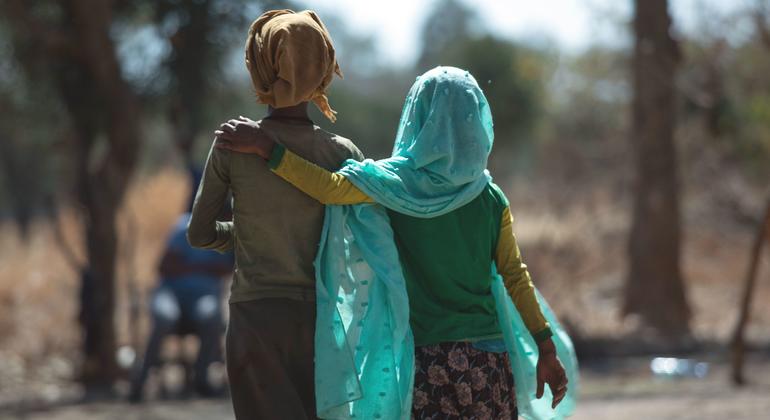Female genital mutilation (FGM) continues to be a pervasive issue across the world, with an estimated 4.3 million girls at risk of being subjected to this harmful practice in 2023. Despite efforts by many States to eradicate FGM, the clandestine nature of cross-border and transnational FGM has allowed the practice to persist.
In a statement, the UN High Commissioner for Human Rights, Volker Türk, emphasized that FGM is a form of gender-based violence that has no place in a human rights-respecting universe. He called for the elimination of FGM in all its forms and the uprooting of gender stereotypes and patriarchal norms that perpetuate it.
FGM, as defined by the World Health Organization (WHO), involves the partial or total removal of the external female genitalia or other injury to the female genital organs for non-medical reasons. This harmful practice is typically carried out on young girls between infancy and age 15, and can have serious health consequences, including severe bleeding, problems urinating, cysts, infections, complications in childbirth, and an increased risk of newborn deaths.
The report highlighted the phenomenon of “vacation cutting,” where families take their daughters to their countries of origin to undergo FGM during school holidays. This practice is particularly prevalent in Europe and North America, where girls are taken to countries that serve as transnational FGM hubs. In some cases, cutters themselves travel across borders to carry out the procedure.
Cross-border and transnational movements for the purpose of FGM were identified as a key challenge in the global efforts to eradicate the practice. Girls and young women living in border communities are especially vulnerable, as these areas often host communities with cultural and ethnic ties that transcend national borders.
Mr. Türk urged States to take a comprehensive approach to addressing the root causes and consequences of FGM, in line with their human rights commitments to eradicate the practice and advance gender equality. This includes harmonizing legal and policy frameworks, allocating resources for regional policy frameworks and cooperation agreements, and providing support for survivors of FGM.
The report called for greater regional and international cooperation to tackle the cross-border scourge of FGM. It emphasized the importance of allocating adequate resources for the establishment and implementation of regional policy frameworks and cooperation agreements, as well as supporting survivors of FGM.
Overall, the report underscored the urgent need for concerted global action to tackle cross-border and transnational FGM. By addressing the root causes of the practice and promoting gender equality, States can work towards the elimination of FGM and the protection of the rights and well-being of girls and women worldwide.









